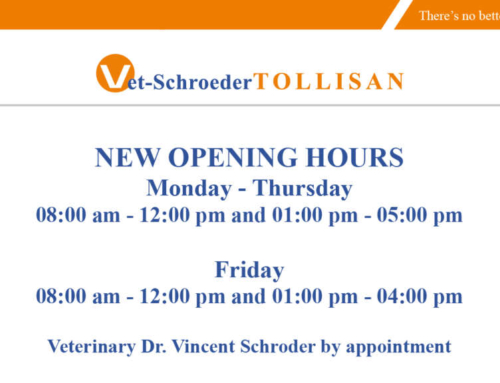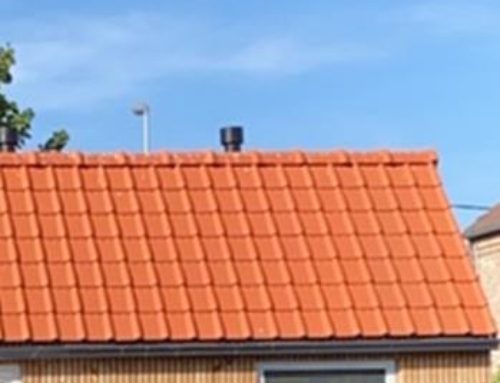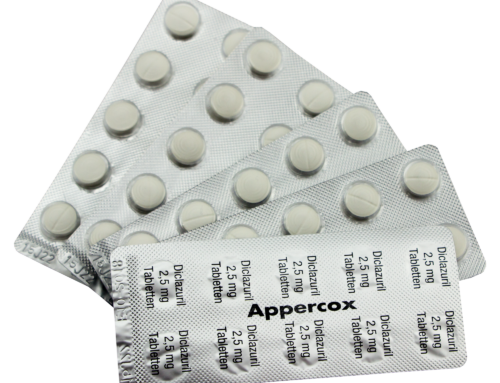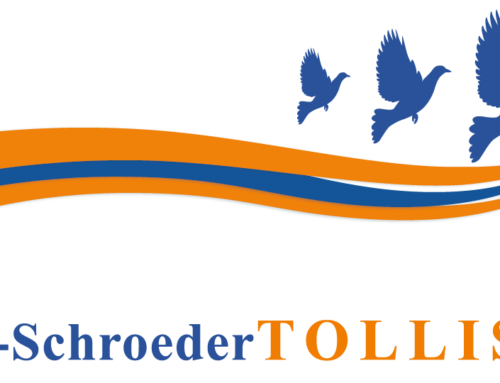ADENOVIRUS
The first recorded symptoms of young pigeon sickness started to appear around 40 years ago. People spoke of „moss disease“ or „Adeno disease“ because Adeno viruses were detected in sick young pigeons. In the 80s and 90s, young pigeons first began to vomit their food and to lose weight because of diarrhea as green, slimy droppings. More and more young pigeons died from these symptoms. Some of the main causes – both then and now – were E. Coli bacteria, Trichomonas, Hexamites and Adeno viruses. However these problems were well controlled with the previously effective antibiotics against Coli bacteria such as Enrofloxacin, Difloxazine, Furamycin and Ronidazole preparations. The effect of the previously effective old antibiotics gradually decreased over time. Nearly 300 different E.Coli bacteria are known to occur in pigeons and poultry, meaning that many old antibiotics no longer work effectively and resistance is also increasingly occurring. Today, new and more effective antibiotics exist against these original symptoms of young pigeon disease caused by E.Coli bacteria. Yearlings and old pigeons nowadays also suffer more from E.Coli during the season. A cure during the season with Matrix against E.Coli bacteria would lead to better performances for many old pigeons and would minimize losses for yearlings. Over the years, fanciers learnt to deal with the young pigeon disease. The two new triple vaccines PHA (Paramyxo-Herpes-Adeno virus) has already proven itself well over the past year and will also help to get the problems controlled.
CIRCOVIRUS
In the mid 90s, a new virus appeared for the first time in pigeons: the Circo virus. Circo viruses were also found in many other animal species. This virus is omnipresent in pigeons nowadays. The old pigeons live with it, but the virus considerably paralyzes or weakens the immune system of the young pigeons up to an age of about 6-7-8 months. Then the young pigeon slowly grows up and new immune systems in the body of the young pigeon make the circoviruses manageable or controllable. By this time, however, the young pigeon is weakened by circo viruses and many other bacteria, like the E.coli bacteria, and is therefore unprotected and defenseless. This creates a vicious circle: the young pigeons are ill, are cured healthy and later fall ill again. As already mentioned, the immunosuppressive effect of the Circo viruses does not produce an intact immune system in the young pigeon until the age of 6-7-8 months. Up till now, a large number of young pigeons nowadays die from Circo viruses and the deadly side effects from E.Coli bacteria. Often the young pigeons die immediately in the nest. That is why it is very useful to vaccinate not only the young pigeons, but also the parent animals with the Circo virus vaccine, because the immunity of the vaccination is passed on to the nestlings via the egg and also via the crop milk. The use of Circo virus vaccine in young pigeons has proven itself in recent years. The immune system is thereby protected and remains intact.
HERPESVIRUS
The herpes virus is one of the newer symptoms of young pigeon disease. Over the last 5 years we have noticed that very often the herpes virus pops up with mostly deadly consequences for the younger, immature youngsters.
The virus no longer plays a major role in older youngsters and old pigeons as they have built up immunity against the herpes virus and live with it as they have a fully functioning immune system. Fortunately, the herpes virus is easily recognized in its early stages by the yellow deposit in the beak and cheeks, which is unfortunately very often confused with Trichomonas. At the end stage of a herpes infection, the young pigeons suffer from severe respiratory distress and usually die. If the mortality rate with young pigeons is high it is also useful in these circumstances to vaccinate not only the young pigeons, but also the parent animals with the new PHA (Paramyxo-Herpes-Adenovirus) vaccine. The reason for this is the same as described above for the circo viruses.
ROTAVIRUS
Rota viruses have also been a new phenomenon in young pigeon disease in the last 2 years, with a death rate of 50%. Sick pigeons die quickly, after a few hours they are dead. Belgian breeders reported that a few pigeons even fell dead from the sky while flying. The Rota virus has long been known to pigeons and only came into the news after a massive deadly outbreak in Australia. But also in Belgium, the Netherlands and Germany the Rota virus has been discovered in many deceased old and young pigeons in the last 2 years. It was often also a combination of circo viruses, rota viruses, coli bacteria and Salmonella that were detected in the dead animals. Now nobocy should immediately panic when young pigeons die. The Australian Rotavirus type is also called the „Victoria Pigeon Rotavirus“. Rotaviruses are subdivided into 8 groups, from A to H. Of course it is useful to use the new Paramyxo-Rota virus vaccine when lightning-fast deaths occur in young pigeons. It would be better to detect the virus in advance via a cloaca smear or examination. It is important to note that we do not recommend the general vaccination of old pigeons or breeding pigeons against Rota virus! There were quite a few problems after inoculating the Paramyxo-Rota virus due to vaccination reactions with the old pigeons.
Rota viruses are the leading cause of diarrhea in humans, mammals and birds. A vaccine has been available for young children for a number of years. In general, however, the infection does not cause severe in healthy people.
Causes for the problems described:
We trade and buy pigeons as never before in the history of racing pigeon sport. One Loft races throughout the world (100 of them in Europe alone) contribute to the spread and mixing of bacteria and viruses in the racing pigeon sport. They are also transported by auctions all over the world! We will not be able to undo this situation!
Solving the problems through analysis and prevention!
We can, however, prepare ourselves for the earlier mentioned problems by vaccinations and research, and we want to contribute to that. Nowadays we can detect many viruses in our partner laboratory – at an acceptable price.
Cloaca smear Adeno virus: 49,00 Euro
Cloaca smear Circo virus: 49,00 Euro
Cloaca smear Rota virus: 49,00 Euro
Throat smear Herpes virus: 49,00 Euro
Package price cloaca smear:
Rota virus + Circo virus + Adeno virus 95,00 Euro
In recent years we have achieved proved good results in problem lofts with the vaccines listed below:
1. Paramyxo-Herpes-Adenovirus triple vaccine
2. Paramyxo-Herpesvirus double vaccine
3. Circovirus single vaccine
4. Rota-Paramyxo-Circovirus triple vaccine
We keep learning every year
and have to adapt our advice due to our experiences with new vaccines. In the young birds it has absolutely been proved good to give the PHA (Paramyxo-Herpes-Adeno virus) vaccine right after weaning. 2-3 Weeks later one should also give the RPC (Rota-Paramyxo-Circo virus) vaccine. Both vaccines have proved to be very good and are indispensable in the prevention of young bird sickness. A booster with PHA is not necessary. A booster with RPC could be useful, especially if the first breeding round was very early (December/ January) and therefor the first vaccination with RPC was done very early. Then there would be a longer period of time, several months, between the first breeding round and the start of the young bird races, which would make a boost with RPC very useful. Further vaccinations like against pox and salmonella are also very recommendable in young birds, but are often neglected because of lack of time. A vaccination against pox however, is very important in young birds. Also the pox vaccine is a live vaccine, that boosts the immune system. From experience, we advise more and more often to inject the pox vaccine in stead of using the follicle method because this method causes thick, ugly, pussy follicles over and over again. Also the vaccination against pox should be done early, like all vaccinations should be done early. Problems like young bird sickness or lack of time can always happen and then one says again: „ Something came up an I could not vaccinate the pigeons anymore against xxx…!“
Conclusion: According our insights from today we will recommend the following schedule:
Young pigeons:
PHA + RPC (2x) + pox + (Salmonella)
Old pigeons:
PHA + pox + Salmonella
Dr. Vincent Schroeder
Specialist Racing Pigeon Veterinarian
November 2020






